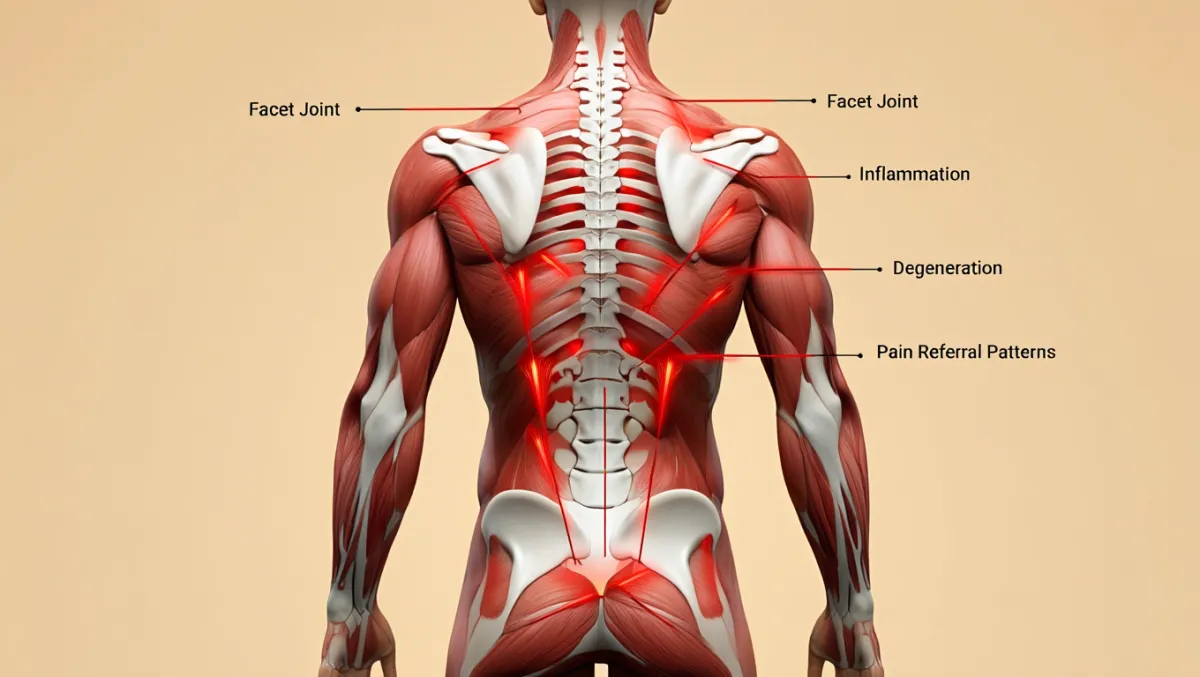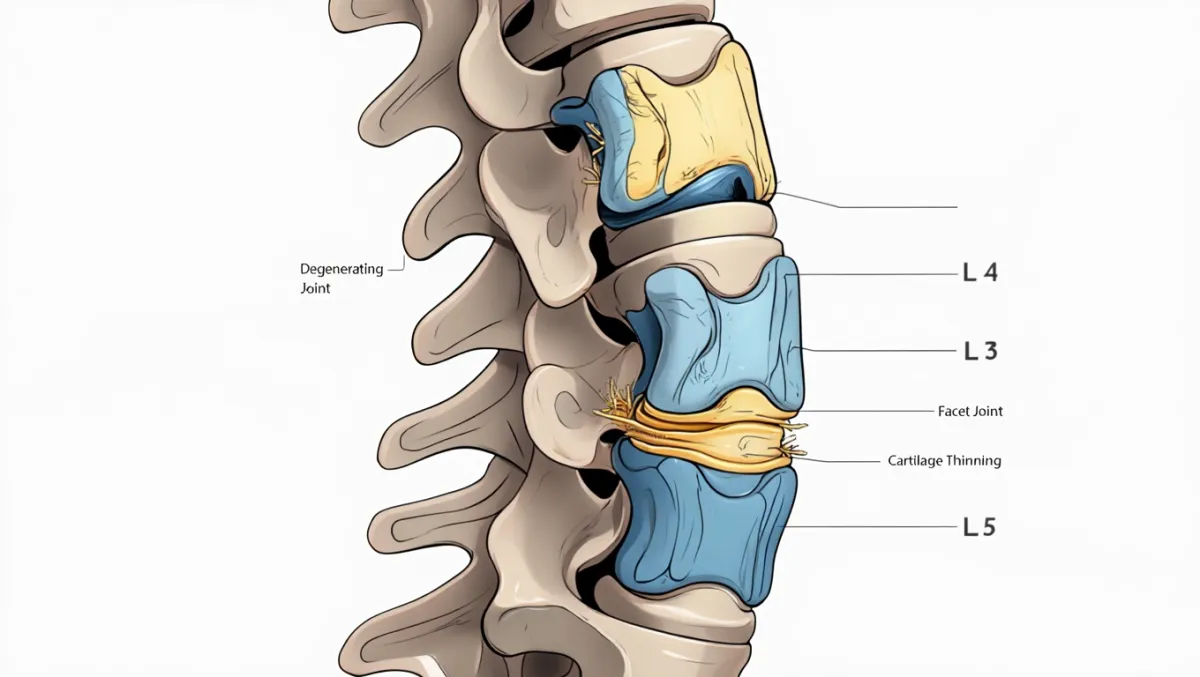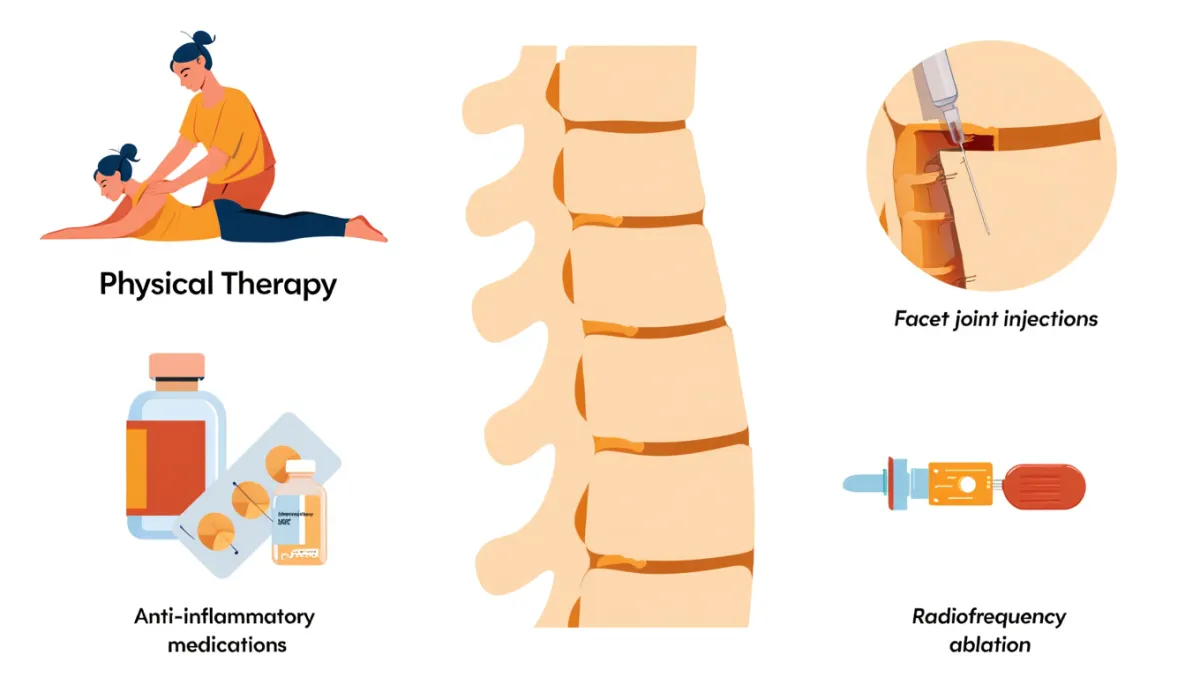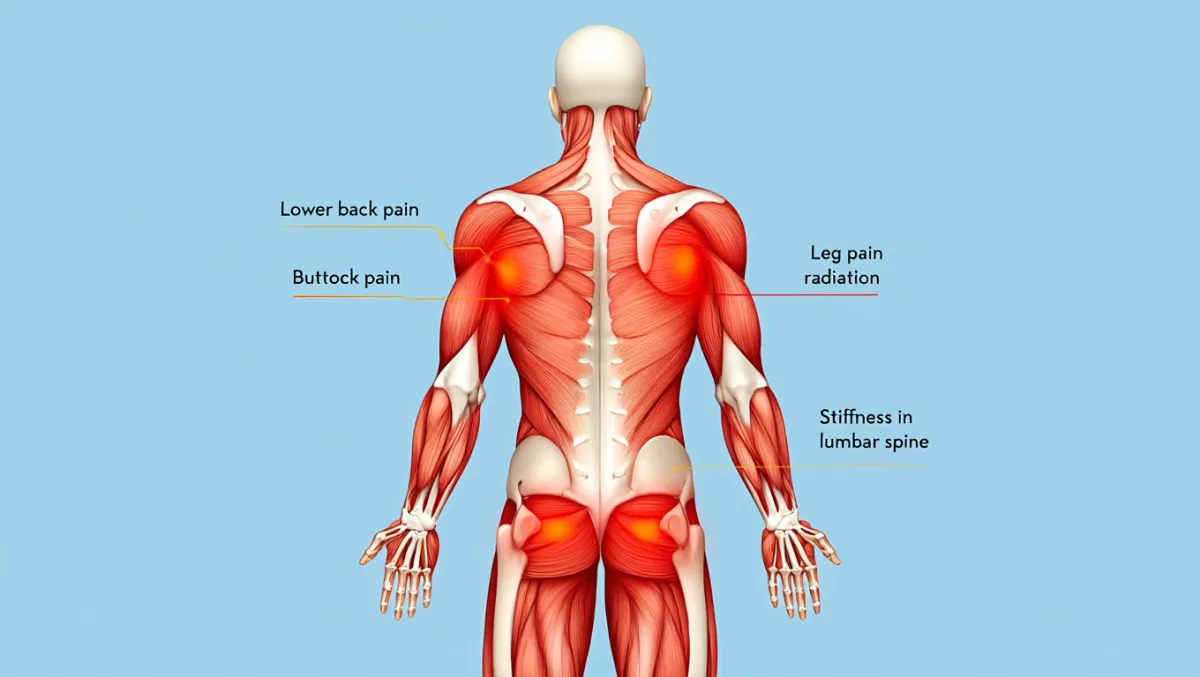Degenerative & Arthritic Conditions
Facet Disease
Facet Joint Arthritis of the Spine Treatment in Phoenix, AZ
The spine is supported by small stabilizing joints called facet joints, located at each level of the vertebrae. These joints guide motion, provide stability, and work in tandem with spinal discs. Over time, facet joints can wear down, lose their protective cartilage, and become inflamed. This condition is commonly known as facet disease or facet joint arthritis. At Desert Spine and Pain, we see facet disease frequently in patients with chronic back or neck pain. Led by Dr. David L. Greenwald, M.D., FAANS, FACS, one of the nation’s top neurosurgeons, our Phoenix-based team provides precise diagnosis and treatment — always starting with conservative options and advancing to minimally invasive care only when truly needed.

Over 100 5-Star Reviews!


What Is Facet Disease?
Facet disease occurs when the cartilage lining the facet joints wears down. This leads to:
Joint inflammation and swelling
Bone spur (osteophyte) formation
Loss of joint space and flexibility
Pain and stiffness, often worse with activity
Facet disease is a form of osteoarthritis and may affect the cervical (neck), thoracic (mid-back), or lumbar (lower back) spine.
Causes and Risk Factors
Aging – Natural wear-and-tear on the joints
Repetitive stress – Heavy lifting, twisting, or prolonged poor posture
Previous injury – Trauma accelerates degeneration
Obesity – Extra weight stresses spinal joints
Genetics – Family history of arthritis
Spinal misalignment or instability – Contributes to uneven joint loading
Symptoms of Facet Disease
Achy, localized back or neck pain
Stiffness, especially in the morning or after inactivity
Pain that worsens with standing, walking, or twisting
Relief when sitting or leaning forward
Grinding or popping sensations in the spine
Radiating pain into buttocks or thighs (lumbar) or shoulders (cervical)
Rarely, nerve irritation if bone spurs narrow the space around nerves

Diagnosis
At Desert Spine and Pain, evaluation may include:
Medical history & exam – Understanding symptom patterns and physical limitations
Imaging –
X-rays for joint space narrowing and arthritis
MRI for cartilage loss, inflammation, and associated disc issues
CT scan in select cases for bone detail
Diagnostic injections – A small amount of numbing medicine is injected into the facet joint. Relief confirms the joint as the pain source.
Treatment Options
Non-Surgical Care
Medications (anti-inflammatories, pain relievers)
Physical Therapy to improve posture, flexibility, and core strength
Lifestyle adjustments (weight management, smoking cessation, ergonomics)
Heat, ice, or massage for symptom relief
Interventional Pain Management
Facet joint injections – Reduce inflammation and confirm diagnosis
Medial branch blocks – Numb the tiny nerves that transmit pain signals from the facet joints
Radiofrequency ablation (RFA) – Provides long-lasting relief (6–12 months or longer) by gently disabling those nerves
Epidural Steroid Injections – May be used if nearby nerve irritation is also present
Surgical Care
Surgery is rarely required for facet disease alone. However, if bone spurs or instability cause significant nerve compression, surgery may include:
Minimally Invasive Surgery (MIS) – Smaller incisions, quicker recovery
Spinal Fusion – To stabilize the spine in severe arthritis or instability cases

Recovery Timeline
Conservative care – Many patients improve within weeks to months
Injections/RFA – Relief may last months to a year; procedures are repeatable
Surgical cases – Recovery ranges from 6 weeks (MIS decompression) to several months (fusion)
Why Choose Desert Spine and Pain?
Nationally recognized neurosurgeon – Dr. Greenwald brings world-class expertise to complex degenerative spine conditions
Conservative-first care – Surgery only if necessary
Comprehensive approach – Full spectrum of therapies, injections, and surgical options
Compassionate team – Guiding patients through every step of care with reassurance

Frequently Asked Questions
Is facet disease the same as arthritis?
Yes. Facet disease is essentially arthritis of the spine’s facet joints.
How is facet disease diagnosed?
Often through a combination of imaging and diagnostic injections that confirm the joint is the pain source.
What’s the difference between a facet injection and RFA?
An injection provides temporary relief and confirms diagnosis. RFA offers longer-lasting relief by disabling the pain nerves.
Can facet disease heal on its own?
No, arthritis is not reversible, but symptoms can be managed effectively.
How does Desert Spine and Pain treat facet disease differently?
We combine precise diagnostics with conservative care and advanced interventional options — all under the expertise of Dr. Greenwald.




Dr. David L. Greenwald, MD
Neuro-Spine Surgeon


Call Now!
Desert Spine and Pain
A Spine Specialist is standing by.
Relief is just a phone call away!
Available Around the Clock.
Phone: (602) 566-9500
Email: [email protected]
Contact Us

Schedule a Facet Disease Consultation
If you’re experiencing persistent back or neck pain from facet disease, early and accurate treatment can make a world of difference. Dr. Greenwald and his caring team are here to help you understand your condition and find the best path to lasting relief. From conservative therapies to advanced minimally invasive options, we’ll be with you every step of the way. Schedule your consultation today and take the first step toward restoring your comfort, mobility, and confidence.

Voted Best Spine Doctor
Over 30 Years Experience in Orthopedic & Neuro Spine Surgeries.

Dr. David L. Greenwald, M.D., F.A.C.S.
Neurosurgeon | Spine Surgeon | Regenerative Medicine
Dr. David L. Greenwald, MD, FACS, is a board-certified spine surgeon specializing in the diagnosis and treatment of facet disease, a degenerative condition that affects the small joints connecting the vertebrae in the spine. Over time, these facet joints can become inflamed, arthritic, or worn down, leading to chronic neck or back pain, stiffness, and reduced mobility. Dr. Greenwald utilizes advanced imaging and minimally invasive diagnostic techniques to identify the affected joints and create a customized treatment plan that may include physical therapy, image-guided injections, or minimally invasive procedures such as facet joint ablation or fusion. His patient-centered approach focuses on relieving pain, improving function, and restoring quality of life for patients throughout the greater Phoenix, Arizona area.
Book your Spine Care Consultation Today!


Desert Spine and Pain
Patient Centered & Partner Focused
Quick Links
Resources
Connect With Us
© Desert Spine and Pain. 2026. All Rights Reserved. Sitemap















